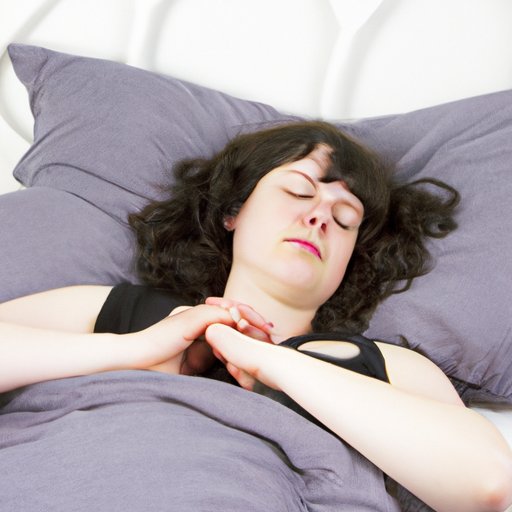
Introduction
Difficulty sleeping is a common issue for many individuals, especially in today’s fast-paced society. While sleeplessness may seem like a minor inconvenience, it can have a significant impact on a person’s physical and mental health. The purpose of this article is to provide easy-to-implement tips and techniques that can help individuals fall asleep faster and sleep more soundly.
Relaxation Techniques
One of the most effective ways to fall asleep is to relax your body and mind. There are several relaxation techniques that you can try, including deep breathing, progressive muscle relaxation, visualization, and meditation. Deep breathing involves inhaling and exhaling slowly and deeply, while progressive muscle relaxation involves tensing and relaxing each muscle group in your body. Visualization and meditation are mental techniques that involve focusing your mind on peaceful, calming images or thoughts. Try each of these techniques to discover which one works best for you.
Healthy Sleep Habits
Developing healthy sleep habits can also promote better sleep. This includes maintaining a consistent sleep schedule, creating a comfortable sleep environment, avoiding caffeine and alcohol before bedtime, and limiting electronic device use in the evening. Establishing a regular bedtime routine is also helpful. Try reading, taking a warm bath, or practicing relaxation techniques before bed to signal to your body that it’s time to sleep.
Natural Remedies
There are several natural remedies that can aid in falling asleep. Herbal teas, such as chamomile or lavender, have calming effects that can help promote sleep. Aromatherapy, or the use of essential oils, can be used to promote relaxation and induce sleep. Additionally, acupressure involves applying pressure to specific points on the body that are believed to promote sleep and relaxation. Experiment with these remedies to find what works best for you.
Exercise
Physical activity is known to promote better sleep quality. However, it’s essential to exercise at the right time of the day. Exercising too close to bedtime can actually interfere with sleep. Try to exercise earlier in the day, preferably in the morning or afternoon. Yoga and other gentle exercises can also promote relaxation and are great to practice before bed.
Sleep Aids
If natural remedies and healthy sleep habits are not sufficient, there are other options, such as sleep aids. Melatonin, an over-the-counter hormone supplement, is widely used to improve the quality and duration of sleep. Prescription sleep medications are also available. However, these must be used with caution, as they can be habit-forming and carry the risk of side effects. Cognitive-behavioral therapy for insomnia is another alternative, as it focuses on identifying and changing negative thought patterns that may be interfering with sleep.
Conclusion
There are various ways to address sleep issues, and not all methods work for everyone. It’s essential to experiment and find the techniques that work best for you. A combination of relaxation techniques, healthy sleep habits, natural remedies, and exercise can significantly improve sleep quality. If sleep issues persist, consult a healthcare professional for advice and possible treatment options. Prioritizing sleep is essential for physical, mental, and emotional well-being.




